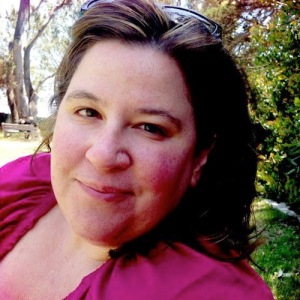
Graduation as Rite of Passage
Dorene Koehler, Ph.D. (Mythological Studies, 2012)

| originally posted 15 July 2013
•|•
Well-constructed, intentional rites of passage are rare in contemporary American society. Frankly, most of us just don’t think about them. We are often too busy with the business of making something of ourselves — of crafting our personal identities — to attend to the needs of soul either personal or collective. Even those of us who have studied the importance of ritual, fellowship, and storytelling are often guilty of ignoring the impact of graduation.
For many of us, especially those who have been grad students at more than one institution, yet another graduation might seem gratuitous. Truly — we’ve already been to the fair, right? Participation in ceremony requires time, travel, and resources. Is the energy worth it? Is another one really necessary?
Yes, in fact, it is.
I am a recent graduate of the Mythological Studies program, so I attended this year as I had friends graduating both from the Masters and Doctoral segments of the program. I noted that several people spoke to me after the graduation regarding feelings that arose during this particular ceremony. They remarked that it seemed especially poignant.
Graduation is a vehicle for ritual, and Pacifica’s graduation attends to this need beautifully. I have personally witnessed and participated in a half a dozen or so graduations at Pacifica during my time in the community. I have often been struck by the intentionality behind the service. From an early invocation to soul to a remembrance of our elders, Pacifica’s graduation ceremony opens space for a mystical union between the entire community: those present physically and not. Once this sacred space is held, the graduate is celebrated and given an opportunity to speak to what the experience means to them.
This year — because we recently lost beloved Mythological Studies faculty member Dr. V. Walter Odajnyk to physical death — our community fused this rite of passage with deeply felt rites of mourning, and in doing so, created something exceptionally meaningful for me. I was/am reminded of why we — the Pacifica Graduate Institute community — need each other. I am reminded that graduation is itself death and rebirth. As such, it requires a ritual structure and community support.
This year Dr. Christine Downing, another of our celebrated Mythological Studies faculty, spoke to this need for community in the beautiful address she gave in memory of Walter. Her refrain — “It’s not over when it’s over.” — reminds me of the Christian tradition of the communion of saints, a theological concept that suggests that when we come together as a ritual body, we are in communion with each other, past, present and future. This means that we are strengthened by our unity in the making of graduation ritual. We intercede for each other. We honor and support each other. We listen to each other. The ceremony is a physical manifestation of this metaphysical reality.
Why is this so important to remember at graduation? As Dr. Downing reminds us, graduation — like the passing of a loved one — is both an ending and a beginning. Again, like the passing of a loved one, it is easy to focus on the aspects of graduation that feel like death. The presence of community — seen and unseen, holding space for psychological energies to flow — is what allows us to remember that in the midst of the death of one of life’s most meaningfully archetypal experiences (being a student), life is present, pulsating and being reborn.
In his book The Magic of Ritual: Our Need for Liberating Rites that Transform Our Lives and Our Communities, Tom Driver states that, “When it is imbued with the spirit of liberty, ritual becomes part of the work through which a body politic (a people) throws off its chains” (190). Similarly, a graduate stands between the life they lived as a student and the one they are about to begin. A well-crafted graduation ceremony, such as we have at Pacifica, allows the community that birthed a graduate’s intellectual life to reaffirm its own commitment to its work and to renew the ties that bind them as scholars and as human souls.
“It’s not over when it’s over.”
This space is liminal and, frankly, scary. Fear is a natural companion to the journey into the unknown — the world outside of the archetypal experience of the student. The transformation of graduation is momentous and complete. It requires witness and participation. This is why it is ritualized through community. Graduation is the quintessential moment when Pacifica stands together as a community of healers, thinkers, artists, and scholars — past, present, future — to honor the cycles of life in our work. It is an annual mythic return to who we are and why we are.
There is no better way to honor those cycles than by participating in graduation and by re-membering the life of Dr. Walter Odajnyk, who continues to live as an elder to many of us.
So, in other words: please participate! Allow your community to hold you through your transformation, whatever kind that may be. And remember to hold them as well. Honestly, that’s why the community exists here in the first place.




